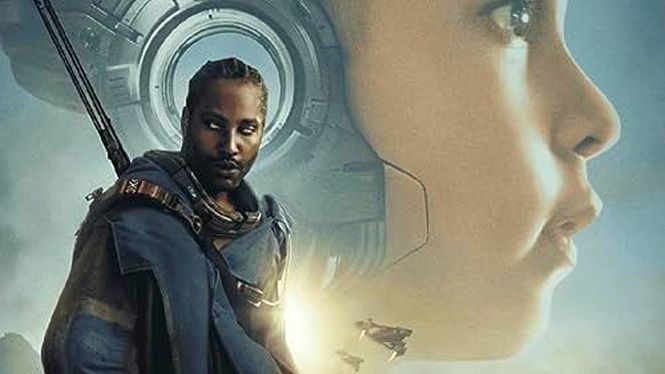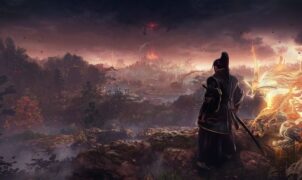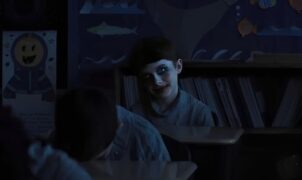MOVIE REVIEW – In an industry dominated by franchises, sequels, spin-offs and other popular spectacles, Gareth Edwards deserves credit for persuading 20th Century Studios to produce an original, standalone sci-fi epic. However, good intentions don’t always lead to great results, which is unfortunately the case with The Creator. The visually arresting but weakly written film, which blends numerous genre predecessors, is a follow-up to Edwards’ “Rogue One: A Star Wars Story,” but it is so confused, cheesy and unbelievable that it almost inadvertently makes a case for its IP-based rivals.
“The Creator” provides an apt metaphor for itself by depicting sentient robots with giant tube-like holes in their heads. Plot progression is certainly not the strong suit of Edwards and Chris Weitz’s screenplay, which borrows and mashes details from better movies and sets up scenarios – and then sequences events – with minimal clarity and even less logic. Every other twist raises a question (or three) that goes unanswered as the movie trudges along its preachy path. By the movie’s halfway point, nothing stands up to basic momentary skepticism, and the entire endeavor becomes merely a showcase for Edwards’ skills at directing war action-a skill that is itself limited here, with no scene really getting our blood pumping. A succinct news introduction explains how humanity has become dependent on AI-controlled robots to serve as society’s cooks, drivers, and cops. However, a nuclear attack in the heart of Los Angeles permanently soured the U.S.’s relationship with its mecha companions, and by 2065 the nation is knee-deep in conflict with the A.I. The primary battleground is New Asia, a vague eastern region that embraces the A.I. as the next phase of “evolution,” with one local stating that robots have “bigger hearts” than Yankees.
It’s unclear how the machines developed consciousness or complex emotions; why they sleep, eat, and smoke; and why some wear human skin masks and others don’t (and, relatedly, why some look older and others like younger adults). What Edwards does make clear is that “bots are essentially human in every way, and the new “others” of Earth, yearning for “freedom” but oppressed and persecuted by heartless warring Americans.
Vietnam War-esque sci-fi, but with robots
Edwards and Weitz spin a quasi-Vietnam War saga that portrays robots as noble, loving, and selfless beings, and humanity (or, more specifically, the U.S.) as a vile, murderous race. Unfortunately, the A.I. characters aren’t engaging; they’re just brave symbols-at least when they’re not comic fodder, like when a couple of autonomous cops explode and wander around headless and confused. By attempting to frame the A.I. as its own “race,” “The Creator” creates a binary us-versus-them dynamic that feels inauthentic from the start and, worse, serves as a vehicle for trite preaching. It’s also utterly unoriginal-something that can be said of every aspect of the movie. Following in the footsteps of “Blade Runner,” “Terminator 2: Judgment Day,” “City of Ember,” “Avatar,” “Apocalypse Now,” “District 9,” “RoboCop,” “Total Recall,” some 20 other classic films, and the video game “Detroit: Become Human,” “The Creator” centers on Joshua (John David Washington), a Special Forces soldier with high-tech prosthetic arms and legs who suffers a catastrophic loss while undercover in New Asia trying to find the A.I.’s creator, Nirmata. A botched raid kills Joshua’s pregnant wife, Maya (Gemma Chan), and he fails in his mission. Years later, sinister military bigwigs Andrews (Ralph Ineson) and Howell (Allison Janney, with a blond schoolboy haircut) persuade him to continue his service, claiming that Maya is indeed alive.
This time, his primary objective is to locate a new weapon developed by Nirmata, codenamed Alpha One. This weapon threatens to give the A.I. the decisive advantage in the ongoing war. When Joshua obtains Alpha One, he discovers it’s a robot child with a penchant for cartoons and the ability to control all electrical devices. He names the child Alfie (played by Madeleine Yuna Voyles) and tries to use him to track down Maya, which puts him increasingly at odds with his own kind. Unfortunately, the movie fails miserably to establish a connection between these two main characters; Joshua is a monotonous hero, while Alfie is a cute android boy, making their scenes together exceptionally boring. Edwards seems to be relying on Voyles’ charm alone to endear not only Alfie, but the entire robotic species. This intention falls flat, however, as the movie races toward a pro-robot ending that is destined to falter melodramatically.
A Shallow, Disjointed Android Story
“The Creator” is a lackluster mess that barely scratches the surface of the profound moral and spiritual issues raised by artificial intelligence. It’s more of a transparent, preachy Christ-child analogy, created without any of the subtlety that might have made it compelling. It’s also a disjointed mishmash featuring Ken Watanabe’s iconic character Harunja, a Japanese robot insurgent who sporadically appears and disappears, holding vital information that could end the war (but revealing it only to Joshua). His character’s arc and climax remain mysterious throughout. It’s a waste, because Watanabe embodies the character brilliantly and exudes the superiority of artificial intelligence. Beyond that, there is no justifiable reason for an actor of such caliber to accept such a pathetically underwritten role.
“The Creator” embellishes its grandiose locations with CGI structures, characters, and vehicles, including an impressively detailed airbase called Nomad that uses a light-wall targeting system to bombard A.I. adversaries. Edwards’ latest creation may be visually stunning, with a handful of instances where his aesthetic flair is strong enough to counterbalance the general silliness and inconsistency of the story. But more often than not, he borrows his concepts from his predecessors in sci-fi directing, filling scenes with enforcer robots reminiscent of the mass-produced successors to Star Wars’ droids and Wall-E’s protagonist. In both form and content, even to the point of pushing the boundaries of schmaltzy melodrama, the movie completely derails in a protracted climax that tries in vain to evoke emotion. Despite its tear-jerking and cheesy mood, the film’s narrative feels painfully robotic, as if it were actually written by an A.I. Or, as one character says, “This isn’t reality – it’s just programming.”
-BadSector-
The Creator
Direction - 6.5
Actors - 6.1
Story - 3.6
Visuals - 8.4
Ambience - 6.2
6.2
FAIR
"The Creator" is a visually spectacular but thematically weak sci-fi film that attempts to address the dilemmas and conflicts surrounding artificial intelligence. The film's shortcomings include a clichéd script, a convoluted plot, and exaggerated character development. Still, under the direction of Gareth Edwards, its visual appeal is impressive, but that alone isn't enough for a wholesome experience.













![[TGA 2025] Star Wars: Galactic Racer Focuses on High-Stakes Podrace Runs [VIDEO]](https://thegeek.games/wp-content/uploads/2025/12/theGeek-Star-Wars-Galactic-Racer-300x365.jpg)



Leave a Reply